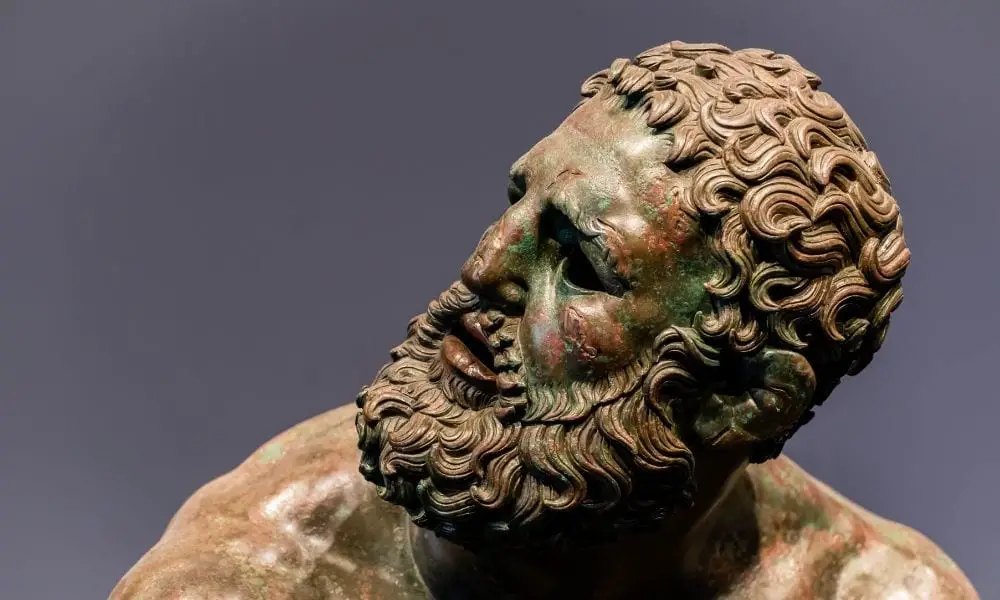

Many sculptors prize bronze metals for their versatility, intractability when molded, and ability to expand right before being set. The process of making bronze statues by hand is quite fascinating, and the level of detail these sculptures can achieve is incredible.
In ancient times, bronze was one of the first metals people used to craft their artistic visions. Unfortunately, the art seemed lost for a time until it cropped back up during the Renaissance period. Luckily, many of the first bronze statues from this early period survived. Here are several examples of famous bronze sculptures of the ancient world.
The Charioteer of Delphi, also known as Heniokhos, is one of the most well-known artifacts of ancient Greece. The statue shows a chariot driver in his moment of triumph after winning a chariot race. As was the custom, the driver—most likely a teenager—reveals a wealth of modesty while taking in his moment of glory. French excavators discovered it in 1896 at the Sanctuary of Apollo in Delphi, Greece. It is one of the most famous examples of the Greek severe style, which emphasized naturalism and began to show depictions of expression and movement.
The Orator, also known as L’Arringatore, is a hollow bronze statue found near Lake Trasimeno in modern-day central Italy in 1566. The figure was sculpted by an Etruscan; the Etruscans were a civilization in the area heavily influenced by Greek art. The statue portrays a man standing with his right arm outstretched, draped in a Roman toga and Roman sandals. The figure was designed as a votive offering paid to a god when that god answered a person’s prayers. The inscription on the statue dates back to the late 2nd or early 1st century B.C.E. The statue is an example of a culture absorbed by the Roman empire.
The Statue of Tara, dating back to the 7th or 8th century B.C.E in Sri Lanka, depicts the Hindu and Buddha goddess Tara, known for her compassion and mercy. The statue itself shows a nearly life-size deity whose right hand stretches out to offer forgiveness while the left sits near her side, possibly holding a lotus flower. The British looted the statue from Kandy, a city located on the present-day island of Sri Lanka. It made its way to the British Museum in 1830 when given to it by Robert Brownrigg, a former British governor from the Sri Lanka area. It is one of the most enormous statues to survive its period in Sri Lankan history, and it’s thought to have been a source of meditation for many.
These famous bronze sculptures reflect the history of human creativity and provide examples of the artistry people could conjure despite having limited resources and technology. These pieces were created thousands of years ago, but the techniques they displayed are still used even today.
Additional Resources:
Picasso
Mark Twain
Edgar Allan Poe
Van Gogh
Andy Warhol
Addressing the Effects of Toxic Backlinks on Search Engine Optimization Search engines, particularly Google, prioritize…
Moving to a new house or business may be an interesting but taxing event. Whether…
Looking to buy a piano? Understand key factors like budget, piano type, sound quality, and…
1. Introduction: The Double Edge of Data Big-data — The modern technology fuel It powers customized recommendations,…
Optimize fleet operations with cost-saving strategies, smarter technologies, and actionable plans to enhance efficiency and…
Desk grommets support hybrid office setups by keeping cables organized and maximizing desk space. Improve…